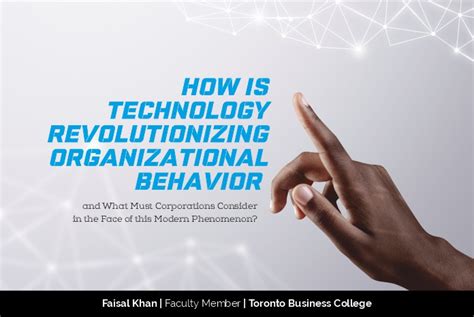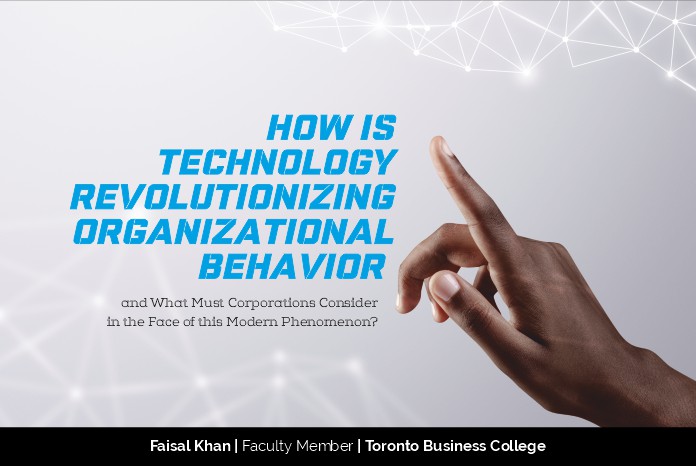In 2024, online college courses are reshaping the landscape of higher education like never before. As technology continues to evolve, the accessibility and quality of online learning have improved significantly, offering innovative and flexible options for students worldwide. From cutting-edge course offerings to adaptive learning techniques, online education is not only accommodating diverse learning styles but also making higher education more affordable and accessible. This shift is challenging the traditional classroom model, pushing educational institutions to adapt and rethink their approaches to teaching and learning. As we explore the current trends and future outlook of online college education, it’s clear that this revolution is just beginning, promising exciting advancements and opportunities for learners everywhere.
Join xotools.xyz for a detailed examination of this topic.
1. Overview of Current Trends in Online College Education
Online college education has swiftly transitioned from a specialized option to a widely accepted choice for students globally in recent years. This shift has been fueled by several significant trends reshaping how education is delivered and accessed. A key driver of this transformation is the emergence of Massive Open Online Courses (MOOCs), which provide free or low-cost access to top-tier university education. Furthermore, there is a growing focus on micro-credentials and digital badges, enabling students to acquire specific skills rapidly and cost-effectively.
Another trend is the growing use of artificial intelligence (AI) and machine learning to create personalized learning experiences. These technologies tailor content to individual learning styles and paces, boosting student engagement and retention. Additionally, the integration of virtual reality (VR) and augmented reality (AR) into online courses is gaining momentum, offering immersive learning environments that simulate real-world experiences.
Online education platforms are expanding their offerings to include a wider array of disciplines and specialized subjects, catering to diverse interests and career aspirations. This expansion provides students with access to a broader spectrum of educational opportunities than ever before. These trends are collectively revolutionizing the field of higher education, making it more flexible, accessible, and responsive to the needs of contemporary learners.

2. Innovative Course Offerings and Subjects
In 2024, online college education presents a dynamic landscape of innovative courses and subjects, catering to the evolving needs and interests of contemporary learners. Educational institutions are no longer bound by traditional disciplines; they are actively expanding their offerings to encompass emerging fields like artificial intelligence, data science, cybersecurity, and blockchain technology. These courses are specifically designed to equip students with the skills necessary to excel in a rapidly transforming job market.
Furthermore, online platforms are expanding their offerings to include interdisciplinary courses that integrate concepts from multiple fields. For instance, they might combine computer science and biology to delve into bioinformatics, or merge business and technology to focus on digital entrepreneurship. This adaptability empowers students to customize their education, aligning it with their unique career goals and personal passions.
Furthermore, numerous online courses now incorporate project-based learning and realistic simulations, offering students practical, hands-on experience. Virtual labs and interactive case studies, for instance, allow learners to apply theoretical knowledge in real-world scenarios, thereby enhancing their problem-solving skills and preparing them for real-world challenges. These innovative course offerings ensure that online education remains relevant, engaging, and aligned with the demands of modern careers.

3. Cutting-Edge Technologies Enhancing Learning
Cutting-edge technologies are driving the evolution of online college education, making learning more engaging, interactive, and effective. A key driver of this transformation is the use of artificial intelligence (AI), which empowers personalized learning experiences. AI algorithms analyze student progress, pinpoint areas of difficulty, and deliver customized recommendations and resources to enhance student success.
Virtual reality (VR) and augmented reality (AR) are transforming the online learning landscape by crafting immersive and interactive experiences that make course material come alive. For instance, VR can recreate historical events, enabling students to virtually explore ancient civilizations, or provide a secure setting for medical students to practice surgical procedures.
Gamification, another cutting-edge technology boosting online education, integrates game design elements like points, levels, and rewards into learning platforms. By transforming learning into a game-like experience, this approach enhances motivation and engagement among learners.
Furthermore, sophisticated data analytics tools monitor and evaluate student progress in real time. This empowers educators to offer immediate feedback and tailor their teaching methods accordingly. These innovative technologies are reshaping the online learning environment, making it more adaptable and focused on the student’s needs.

4. Flexibility and Accessibility for Diverse Learners
In 2024, online college education stands out for its remarkable flexibility and accessibility, catering to a diverse student population. Unlike traditional classrooms, online courses empower learners to set their own pace and schedule, breaking down barriers to education. This advantage is particularly valuable for working professionals, parents, and individuals with disabilities, who often require more adaptable learning environments.
Online platforms provide global access to high-quality education, dismantling geographical barriers and offering opportunities to students from diverse backgrounds. This accessibility enables learners from different parts of the world to enroll in courses from top universities, gaining valuable knowledge and skills that would otherwise be inaccessible.
Online courses often provide a range of formats and resources, including video lectures, interactive quizzes, and discussion forums. This diverse approach caters to individual learning preferences, enabling students to select the style that best suits them. By offering a variety of resources, online courses ensure that all learners, regardless of their preferred learning method or prior educational background, can effectively engage with the course material. The flexibility and accessibility of online education empower learners from all walks of life to pursue their educational and career goals on their own terms.
5. Impact on Traditional Classroom Education
The increasing popularity of online college education is dramatically altering the landscape of traditional classroom learning, prompting a reassessment of conventional teaching practices. As students increasingly gravitate towards the flexibility and accessibility offered by online platforms, traditional institutions are forced to adapt and incorporate digital components into their courses. This evolution has spurred the creation of hybrid models, which blend in-person instruction with online resources, resulting in a more integrated and flexible learning experience for students.
Furthermore, the focus on personalized and adaptive learning in online education has prompted traditional classrooms to embrace similar strategies. By leveraging data analytics and technology, these classrooms aim to cater to the unique needs of each student. Additionally, the widespread availability of online courses has heightened competition, driving institutions to innovate and elevate the quality of their in-person offerings.
To address these challenges, numerous universities are making significant investments in technology and digital tools. Their goal is to enhance student engagement and learning outcomes. This strategic approach is fundamentally transforming the higher education landscape, making it more dynamic and inclusive for all.
6. Affordability and Cost-Effective Learning Solutions
Online college education in 2024 is transforming accessibility by providing cost-effective learning solutions. Unlike traditional on-campus programs, which often carry significant tuition, accommodation, and other expenses, online courses offer a more budget-friendly alternative. This affordability is a major reason why online education is attracting an increasing number of students.
Online learning platforms offer flexible payment options, including pay-per-course models and subscription-based access to a diverse selection of courses. This empowers students to manage their educational expenses efficiently. Furthermore, the elimination of costs related to commuting, housing, and physical materials significantly reduces the overall financial burden for students.
The availability of scholarships and financial aid options for online learners is on the rise, making higher education accessible to those who may have previously been unable to afford it. Moreover, the emphasis on skill-specific certifications and micro-credentials enables students to rapidly acquire valuable expertise and enter the workforce without the financial and temporal constraints associated with traditional degree programs.
The affordability of online education is playing a key role in democratizing access to learning. This accessibility is empowering a wider range of individuals to pursue educational and professional growth opportunities.
7. Personalization and Adaptive Learning Techniques
Online college education is being revolutionized by personalization and adaptive learning techniques. These approaches tailor the learning experience to meet the unique needs of each student. Advanced algorithms and artificial intelligence (AI) analyze student performance and learning styles, enabling courses to dynamically adjust content, pacing, and difficulty. This personalized approach effectively addresses individual challenges and maximizes learning efficiency.
Adaptive learning platforms personalize the learning journey for each student by leveraging real-time data to deliver targeted feedback and recommendations. This personalized approach ensures that students receive support that caters to their individual strengths and weaknesses, ultimately improving their educational experience.
Furthermore, personalized learning tools provide a wealth of diverse resources, including video lectures, interactive exercises, and supplementary materials, tailored to individual preferences. This personalized approach enriches the learning process by catering to various learning styles and needs, ultimately enhancing engagement, retention, and academic success. Consequently, online education becomes more effective and responsive to each student’s unique learning path.
8. Success Stories and Case Studies
The power of online college education to transform lives and organizations is evident in numerous success stories and case studies. Many professionals have successfully used online courses to enhance their skills, leading to career advancements and new opportunities. For example, Jane Smith, who previously worked in a traditional office setting, transitioned to a tech role after completing a series of online data science courses. Her new skills and certifications significantly increased her employability and earning potential.
Companies are increasingly embracing online learning for employee development, with noteworthy outcomes. A case study of a multinational corporation demonstrated that employees who engaged in specific online training programs experienced enhanced productivity and job satisfaction, culminating in a tangible rise in overall performance.
These success stories and case studies highlight the effectiveness of online education in delivering flexible, accessible, and impactful learning experiences. They illustrate how online courses can foster personal growth and professional development, ultimately contributing to the achievement of individual and organizational goals.
9. Future Outlook: What’s Next for Online Education?
The future of online education holds the promise of even greater innovations and advancements as technology continues its relentless march forward. One of the key trends shaping this future is the integration of artificial intelligence (AI) and machine learning. These technologies will empower educators to personalize learning experiences to an unprecedented degree. AI will enable more precise adjustments to course content and pacing, tailoring them to each student’s individual progress and preferences. This personalized approach will further enhance the effectiveness of online education, leading to improved learning outcomes for all.
Virtual reality (VR) and augmented reality (AR) are poised to play an increasingly prominent role in education, offering immersive learning environments that mirror real-world situations and promote the development of practical skills. This will further elevate the interactivity and engagement of online learning.
Furthermore, the advancement of blockchain technology has the potential to create more secure and transparent credentialing systems. This would enable verifiable and easily shareable academic achievements.
The growth of online education will foster closer ties between educational institutions and industry partners. This collaboration will generate more opportunities for students to acquire practical experience and earn industry-validated credentials. These advancements will guarantee that online learning remains agile, current, and responsive to the ever-changing requirements of the global workforce.
Online college education in 2024 is reshaping the landscape of learning with its flexibility, affordability, and technological advancements. By embracing innovative course offerings, cutting-edge technologies, and personalized learning techniques, it provides an accessible and effective alternative to traditional education. As we look to the future, continued advancements promise even greater opportunities for students and educators, making online education an increasingly vital component of the academic world.
xotools.xyz









